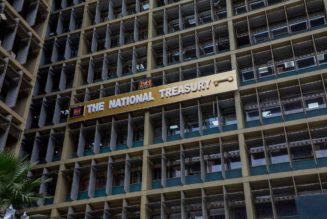
My name is Charles. I am set to retire from employment in January 2025. I expect to go home with a lump sum pay of Sh3 million and a monthly pension of Sh65,000. How do I invest this money for a comfortable post-retirement life with the same standards I currently live by?
Benjamin Cheruiyot – the Engagement Lead at Abojani Investments, a personal finance and investments advisory firm
Planning how to spend your time in retirement depends on your knowledge, skills and active job experience. One ought to identify an interest to pursue years before retirement.
Using one’s networks in employment can help set up a thriving business while still on payroll. Many cases of retirees losing their retirement savings to “quick fortune” schemes abound.
Others get into the lure of rentals, expending all lump-sum payouts to projects without detailed building cost plans. The result is unfinished structures, tied cash, and mounting distress.
At retirement, bills hardly change when salary stops, yet the monthly pension does not match your last salary. You need to scale down your lifestyle since inflation will always reduce your purchasing power.
The first thing is to maintain comprehensive medical insurance. Old age attracts reduced body immunity, especially with underlying conditions.
Do not carry your job title into retirement. Cases of retirees keeping up their pre-retirement employer-funded privileges abound. You may no longer afford frequent travel as fuel costs are always looking up.
Expensive eat-outs will also drain your finances. If possible, limit outsourcing services you can do yourself.
If you have a farm, agribusiness requires proper market research lest you be stuck with produce. If done well, there are endless opportunities for wealth creation.
Unlimited value addition to farm produce will also give you a ready market to satisfy. Your skills and passion, even at low season, will determine the extent of success.
If you have a rural home, you could relocate and enjoy country living where you will grow your own food and drastically lower living costs, besides healthy eating. City living is costly and could prevent you from pursuing other passions.
Look at your expected expenses. Working with a budget will help you tell whether the Sh65,000 monthly pension will be sufficient or may force you to relocate upcountry or to a low-cost location.
As you expect a Sh3 million lumpsum payout, will this amount last you that long? Assuming you do not have cash-flowing investments, this amount only equals less than four years of your expected monthly pension.
With inflation, this can reduce even further. You need to invest this amount to earn you more interests that will keep you going longer. Investing in a safe but meaningful returns vehicle like government bonds will earn you a regular income.
To meet regular expenses or short-term projects, you need to put part of it in an easily accessible account, like a money market fund. Sh3 million in an MMF netting 12 per cent annually will earn you Sh30,000 monthly.
If invested in a Treasury or Infrastructure Bond returning 18 per cent per annum, you will earn Sh270,000 every six months. This averages Sh45,000 a month.
While government debt instruments pay higher interests, your capital isn’t available to you for the entire duration of the bond.
Short-term instruments like treasury bills nearly match returns with money market funds. Should you opt for the latter, your combined monthly income will be about Sh110,000.
Making the decision to invest in bonds depends on your plans for retirement. If you seek to get into business or a farming venture, you may not have much left to invest in the capital markets. Compare returns from these passive investments and own business.
You could also take an income drawdown plan from a life insurance company. You give them a lump sum amount to manage on your behalf then receive fixed payouts on a schedule of your choice.
You might also consider dividing your lump sum into different investment portions (bonds, Sacco, MMF, and high dividend yield stocks) to avoid placing all your eggs in the same basket, as well as guarantee regular payouts that align with your financial needs.
Nonetheless, since you will be getting a monthly pension of Sh65,000 in addition to the lumpsum payout, you will have the luxury of investing the Sh3 million in a long-term instrument (such as infrastructure bond) and have Sh65,000 to live on and budget for short- and medium-term goals.
Don’t be so blinded by the regularity of the Sh65,000 monthly income that you neglect the principles of proper personal finance management. Avoid high financial risks such as debts as much as you can.
One of the biggest mistakes retirees make is to use retirement benefits to start businesses. Research shows that up to 48 per cent of new businesses opened by retirees are unprofitable while 21 per cent of those started with a lump sum investment collapse.
Don’t hive off money from your lump sum to start a business unless it is a line of work that you have been practicing for a while and have a list of clients ready to convert.
While the lump sum can be utilised as a source of capital for a business that may successfully sustain you post-retirement, the risk of the money being unwisely exhausted is very high.
Managing cash flow in retirement is highly recommended. You shouldn’t hesitate to work with a planner to adjust your portfolio allocation subject to market dynamics and future economic outlook.
If you have any money problems, send us an email at [email protected] and leave your number for contact. Money questions will be answered on this column.









